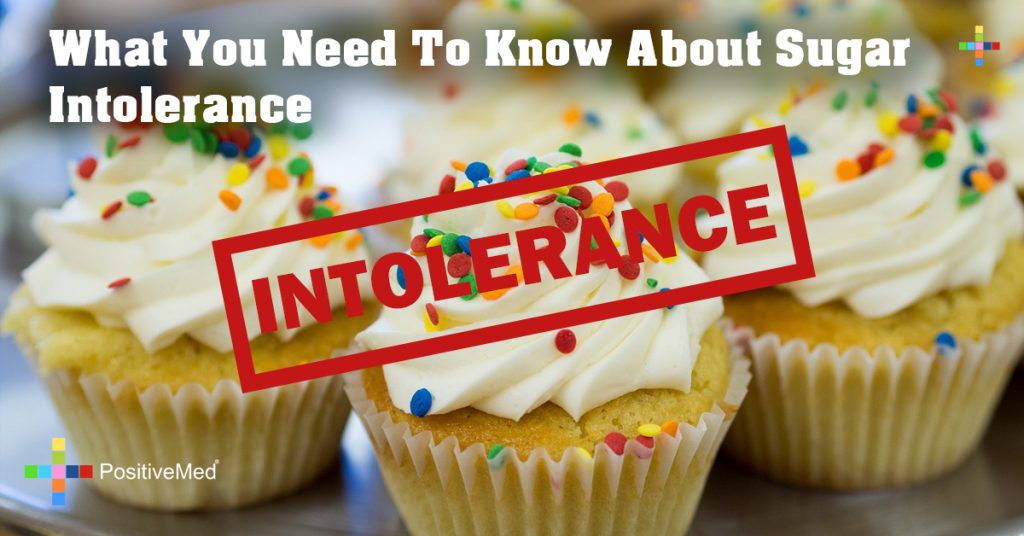
What You Need To Know About Sugar Intolerance
Sugar Intolerance: Definition and Symptoms
Have you ever experienced discomfort after eating sugar or sugary foods? It’s not just you, but probably almost everyone you know, sugar intolerance is becoming a common ailment. By definition it’s the inability to digest sugar properly. It’s a hereditary condition also known as dietary fructose intolerance or sugar malabsorption, in which liver enzymes responsible for fructose breakdown are deficient. When eating junk food is a regular thing, people are more prone to it because the human body cannot handle the amount of sugar in today’s diet.

There are many indicators of sugar intolerance; type 2 diabetes, bowel problems, hypoglycemia, and gastrointestinal discomfort. According to Food Intolerance Diagnostics nearly 1/3 of the adult population is affected by sugar intolerance.
Related Article: This Simple Oil Protects Kidneys, Cure Diabetes and is a Great Aphrodisiac
The primary symptoms of sugar intolerance include gas, bloating, belching, diarrhea, and abdominal pain. Other symptoms include:
- Nasal problems
This is a common symptom of sugar allergies, the sinus cavity becomes inflamed and swollen from the production of histamine, which leads to excess mucus forming that backs up throughout the head leading to sinus headaches. These headaches occur behind the eyes, cheeks, then move to the head. Sneezing, runny nose, and congestion are other nasal issues caused by sugar intolerance.
- Gastrointestinal Issues
When you can’t digest something properly it leads to gastrointestinal problems, including with sugar. Gastrointestinal issues may result in cramping, diarrhea, abdominal pain, nausea, and vomiting. The only way to handle gastrointestinal issues after consumption of sugar is to sit back and wait for your body to expel it. Moreover, common medications for bloating, gas, and upset stomach will not ease digestive symptoms of sugar intolerance.
Related Article: Top 10 Reasons You have Stomach Pain

- Asthmatic issues
Asthma symptoms are common with sugar intolerance. The airways become swollen and inflamed making it difficult to breathe which result in shortness of breath, wheezing, and coughing.
- Other symptoms include insatiable cravings for sweets and refined carbohydrates, depression, chronic fatigue, irritability, poor memory, poor skin/nails/hair, difficulty losing weight, severe PMS, confusion, ADHD, forgetfulness, and joint or muscle pain.
The symptoms of sugar intolerance vary from person to person. Some suffer more severe symptoms than others who have just noticeable symptoms. The amount of sugar consumption may define the severity of the symptoms. They can appear instantly or be delayed depending on what you have eaten. Sometimes they occur a few hours after eating sugary foods and sometimes a day or two later, which makes diagnosis difficult.
Related Article: See What Happens To Your Body When You Quit Sugar
You can find out if you are sugar intolerant by doing a food elimination diet or test because the listed symptoms may be the result of other health issues. Testing sugar intolerance can be hard because it requires eliminating sugar, which can cause withdrawal symptoms. With withdrawal you feel lousy and it’s hard to determine if it’s sugar or something else. Be patient and wait for the withdrawal symptoms to abate before starting an elimination diet. When you add sugar back you may want to overeat sweets, don’t.
You can keep a record of your body’s reactions before and after eating sugary foods and drinks. When you just can’t resist eating sugar, even when you’re not hungry, you might be sensitive to sugar.
livestrong eatingforenergy solvingtheibspuzzle healthydietbase hemocode





